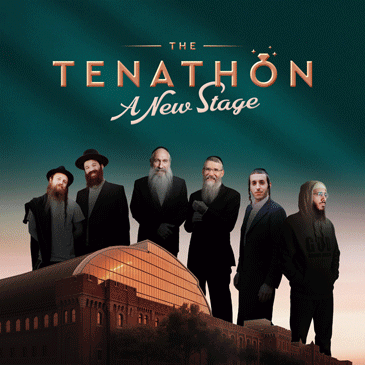When Rabbi Zalman Mendelsohn arrived in Jackson, Wyo., in May, the first thing he did was open the phone book in search of Jewish-sounding names.
“After making a few phone calls, I realized I wasn't getting anywhere,” Mendelsohn says. “I was finding a lot of wonderful German people living here in Jackson.”
Click Here to listen to the interview.
Wyoming Rabbi Reaches Out, One Challah At A Time
When Rabbi Zalman Mendelsohn arrived in Jackson, Wyo., in May, the first thing he did was open the phone book in search of Jewish-sounding names.
“After making a few phone calls, I realized I wasn’t getting anywhere,” Mendelsohn says. “I was finding a lot of wonderful German people living here in Jackson.”
Click Here to listen to the interview.
But no one was Jewish. Finding Jews in Wyoming — and bringing them the traditions of their faith — is the young rabbi’s mission, and he was undeterred.
Mendelsohn created a Web site to reach out to Jews across the country, advertised his religious events in the Jackson newspaper and leveraged his most dramatic asset: his appearance.
“I am a walking advertisement for Judaism,” he says.
With his black suit, black yarmulke and full black beard, he’s straight out of central casting — Warsaw rabbi, circa 1935. He cuts an anachronistic figure, sitting in his backyard on a summer afternoon with the Grand Tetons slicing the horizon behind him. Mendelsohn, who is 26, and Raizy, his 21-year-old wife, are emissaries in the Chabad-Lubavitch movement, an Orthodox branch in which young Orthodox Jews move to remote areas of the world armed with their faith and rituals.
What The Soul Wants
The Mendelsohns, who moved to the resort town from New York, say they encountered material wealth but spiritual hunger.
“The soul also has very particular needs, and those needs are spiritual in nature,” the rabbi says. “The soul wants godliness. The soul wants holiness. The soul wants Shabbos [Sabbath]. The soul wants Torah. The soul wants doing kindness and goodness and mitzvahs [good deeds]. This is what the soul wants. And so therefore, in order to be able to satisfy the person, spiritually, the person has to satiate himself with these types of things.”
So Mendelsohn imported yarmulkes. He brought in scrolls called mezuzahs for the doors of Jewish homes and items for Jewish rituals. “Educational resources, classes, lectures, holiday-observance celebrations, traditional Friday nights and Shabbat meals — these are all things that became available, all of a sudden, that weren’t here before.”
Wyoming seemed an underserved spiritual market. Mendelsohn quickly realized he needed to create a market for Judaism: It’s fine to offer Jews a skullcap or a Shabbat dinner, but unless there’s a demand — unless they want to embrace the faith that underlies these things — all his efforts would be meaningless.
So the Mendelsohns are trying to revive a yearning for Jewish spirituality and community — one challah at a time.
Modern Rabbinic Marketing
Friday mornings find Raizy Mendelsohn lovingly slipping five braided loaves of bread into Ziploc bags.
“This is the way I package them since I don’t have a professional machine,” she says, placing a label on the top. It says: “Zalman and Raizy Mendelsohn wish you a tasty and peaceful Shabbaz” and includes their name and P.O. box number.
They call it “21st century rabbinic marketing.”
After his wife packages the bread, Zalman Mendelsohn makes a surprise visit to the homes of Jews in Jackson, fresh challah in hand. On this particular day, he is off to see Reuben Tambor, one of the 500 or so Jews who live in Jackson year-round. Mendelsohn has dropped by before, and Tambor has always been nothing more than cordial — until today.
When Mendelsohn arrives, Tambor and his two dogs greet him warmly.
“I have a number for you,” Tambor says. “Somebody asked me if I knew a rabbi — can you believe it? — and I took down the name. Let me find it.”
Mendelsohn is thrilled. “Wow, Reuben, thank you!” he says. It’s unclear whether he’s happier about Tambor’s friendliness or a new lead on a Jew in town.
Tambor writes down the name and number and then happily takes the bread. The two men chat briefly, and before the rabbi wears out his welcome, he leaves for his next delivery.
In the car, Mendelsohn breaks out in a large grin.
“See! This is the way it works,” he says. “This is how we network. We’ve been doing it for so many years — and it works!”
Eventually, Mendelsohn says, people usually come around.
“This is a lifelong campaign,” he says. “It doesn’t stop after I’ve found 50 Jews. It doesn’t stop after I’ve found 100 Jews. It doesn’t stop, it doesn’t end. The campaign continues.”
Chabad-Lubavitch
Mendelsohn signed on to the Chabad movement when he was very young.
“I always looked around, and I saw that the most passionate, loving, enthusiastic and caring people in my life were Chabad rebbes,” or rabbis, he says. The Chabad-Lubavitch movement — a branch of Hasidism — began in Russia 250 years ago. It hews to an Orthodox Judaism — including fairly strict gender roles as well as keeping kosher — and takes a scholarly and mystical view of the Torah.
Under the guidance of its most recent leader, Rabbi Menachem Mendel Schneerson, Chabad became a sort of Jewish Peace Corps, sending out young people as emissaries to revive the traditions that had often fallen by the wayside.
But Mendelsohn is quick to say that the goal is not to make Jews Orthodox; rather, it is to make Orthodox rituals and learning available to Jews.
“We don’t expect them to become as we are. We don’t expect them to start wearing a yarmulke, or for the women to wear a long skirt and dress as we do,” he says. “We accept people as they are.”
Meet Mendelsohn
It’s gotten busy for the Mendelsohns since they arrived in Jackson.
“Every half-hour, we get a phone call or e-mail, nonstop. Every half-hour,” Mendelsohn says.
Along with his challah outreach, his Web site and newspaper ads, Mendelsohn also recently organized a “meet the rabbi” open house at a Jackson hotel.
About 50 people attended the gathering — a fair showing in a city that has about 500 Jews. Over cookies and cake, Jackson resident Ken Begelman says the new rabbi has revived Jewish life in the state.
“There was never a rabbi here before, and he’s also brought a sense of Yiddishkeit [devotion to Jewish tradition] to the community, which was really missing,” Begelman says.
Wrong Impression?
Lisa Finkelstein, who serves on the board of the Jackson Hole Jewish Community, a group of mainly Reform Jews that began about 30 years ago, disagrees.
“The Chabad rabbi is not the rabbi of Jackson Hole,” Finkelstein says.
Finkelstein, who did not attend the open house, says she doesn’t like Mendelsohn’s style.
“He contacts people on the phone, by e-mail, in the parking lots,” she says. “And we don’t necessarily do that.”
Nor are most Jews in the area as conservative as the Mendelsohns. The rabbi always wears a yarmulke and declines to shake hands with women. His wife wears long skirts and spends much of her time cooking. (She also manages the Web site as well as helps in the planning and directing of all of their activities.)
Fellow board member Rachel Ravitz worries that the Mendelsohns may give people the wrong impression of Judaism.
“People in Wyoming might not necessarily know what a Jew is in the first place,” Ravitz says, “and if they meet a Chabad rabbi, they might not realize he represents a certain sect of Judaism.”
But the big problem, several people say privately, is competition. The new rabbi’s outreach programs cost $11,000 to $12,000 a month. The Mendelsohns have received a small grant for startup costs, but they must raise all other funding on their own. The current Jewish community group fears that if people start attending Mendelsohn’s congregation, their money will follow.
Raizy Mendelsohn says a little competition can be healthy.
“It’s great, because the people are getting more,” she says. “It’s kind of like when you have one store and then another store opens up. The first store is all mad, but the people are all very happy because they get better bargains and better deals, and they get more variety.”
Her observations echo the findings of sociologists, who say religions thrive in the United States precisely because they compete in the marketplace of ideas. And if success is measured in Shabbat dinners attended, the Mendelsohns are grabbing market share.
Shabbat Dinner
For Shabbat dinner at her home, Raizy Mendelsohn prepares five courses, including fish, chicken, dips, salad and dessert.
She must finish the preparations before the sun sets and all work, including driving cars and using electricity, must cease. She says she has no idea how many people will come to dinner — maybe a dozen, give or take five.
There is a lot of uncertainty when you start a religious enterprise.
“I remember our first week here,” she says. “We had one woman come, and she sat there through the whole service. And later, I said to Zalman, ‘You know, in a couple years, she’ll be telling people, ”When the rabbi started, I was the only one who came to services, and now look at how many people there are!“ ‘ ”
Soon 11 people — including two young men from Israel who heard about dinner from the Web site — are seated around the formal table overflowing with food and wine.
They begin to sing a prayer, clapping, the tempo picking up.
All the planning and marketing and technology is for this moment — bringing Jews back to Shabbat and back to their community, the rituals so long neglected.

















mendy
Keep up the good work we stop off in Jacksons on are way on vacation
and his neighbor has pet horses.
chaim
zalman and raizy are doing an amazing job, keep it up!!
i am a big fan :-)
marks
SO NICE TO SEE AN ARTICLE ABOUT PEOPLE WE KNOW.keep up the amazing work of the Rebbe.Loooking forward to more amazing articles and press releases.
The pintale yid is everywhere and we Lubavitchers are going to find them and bring them home.